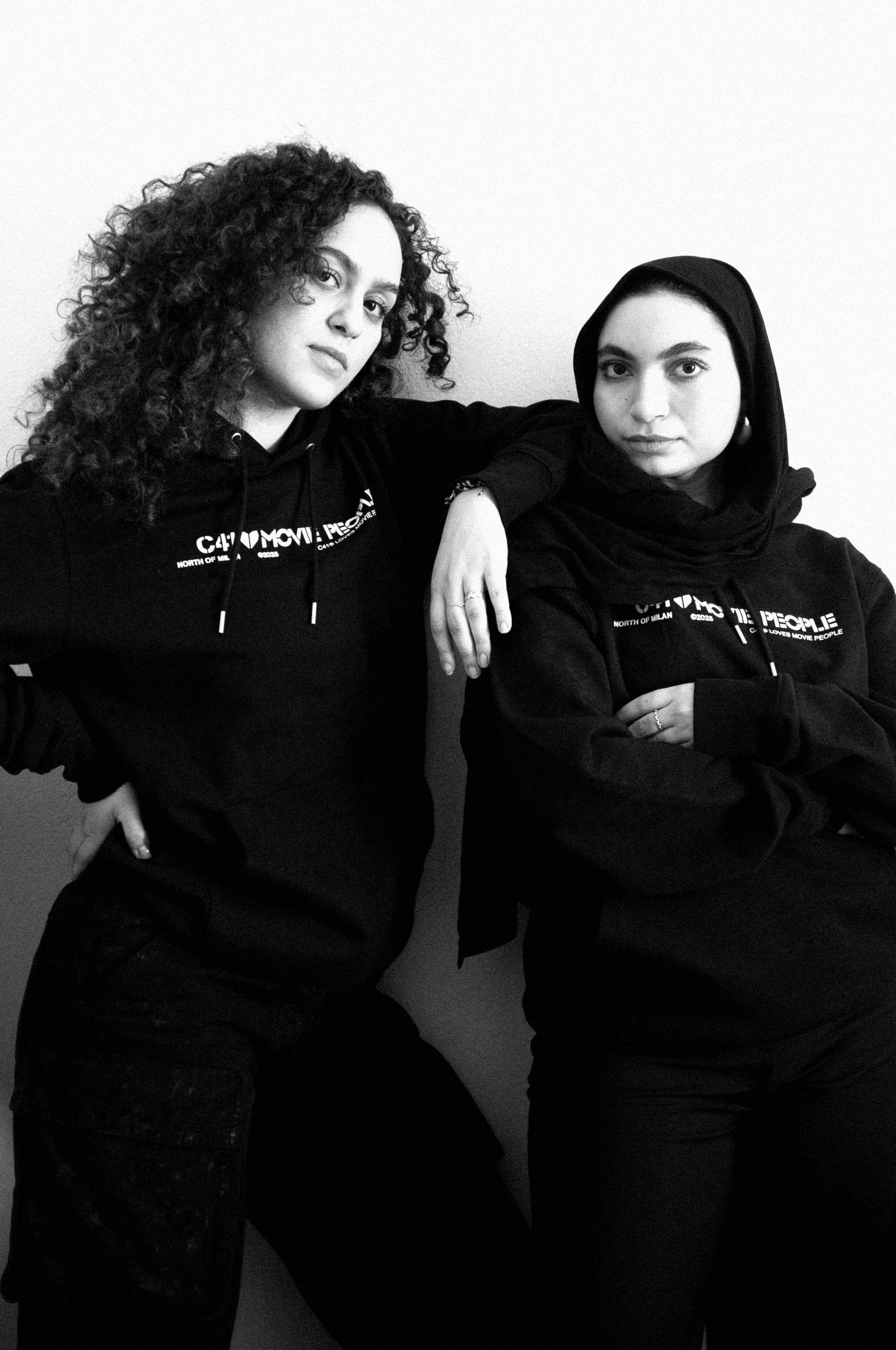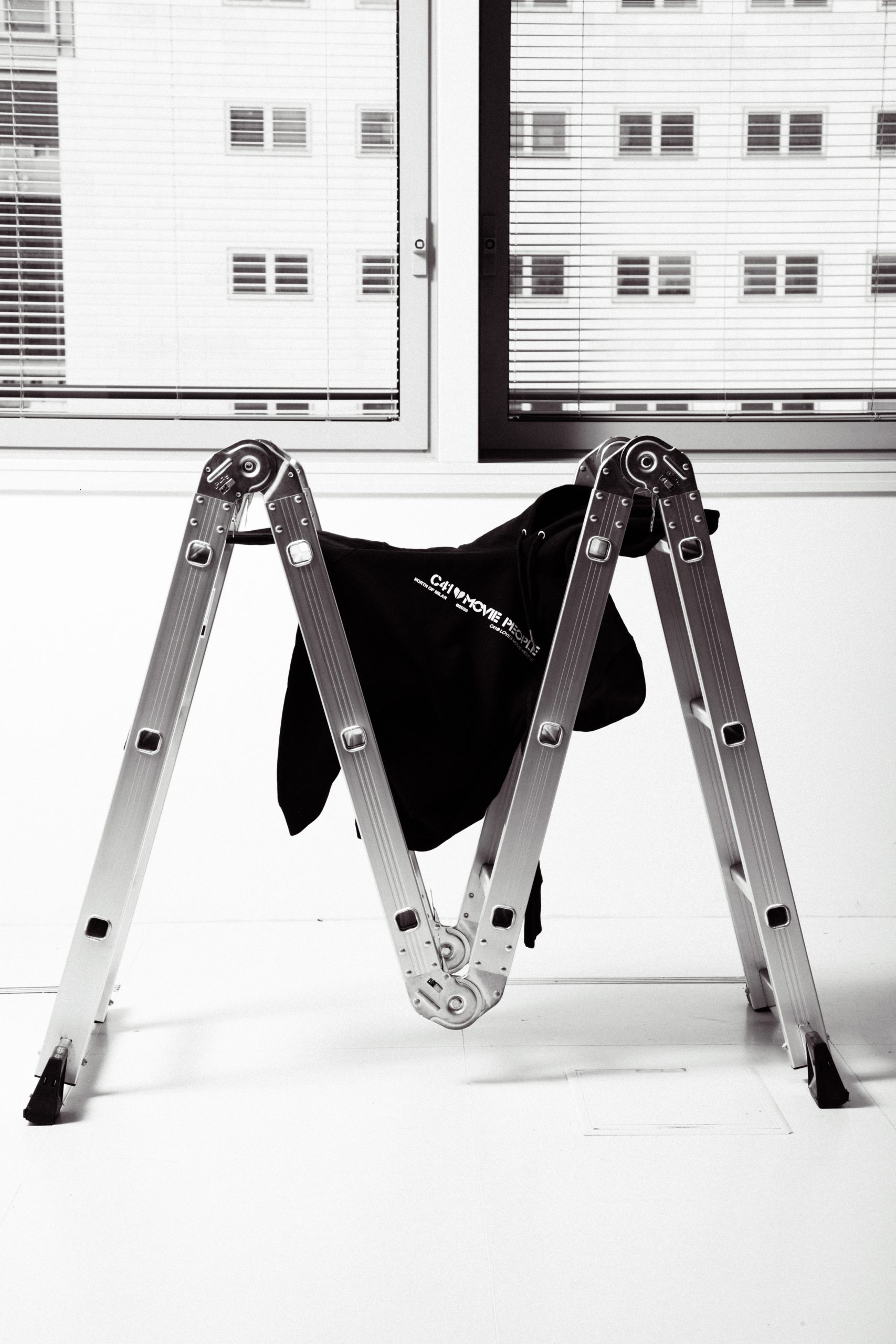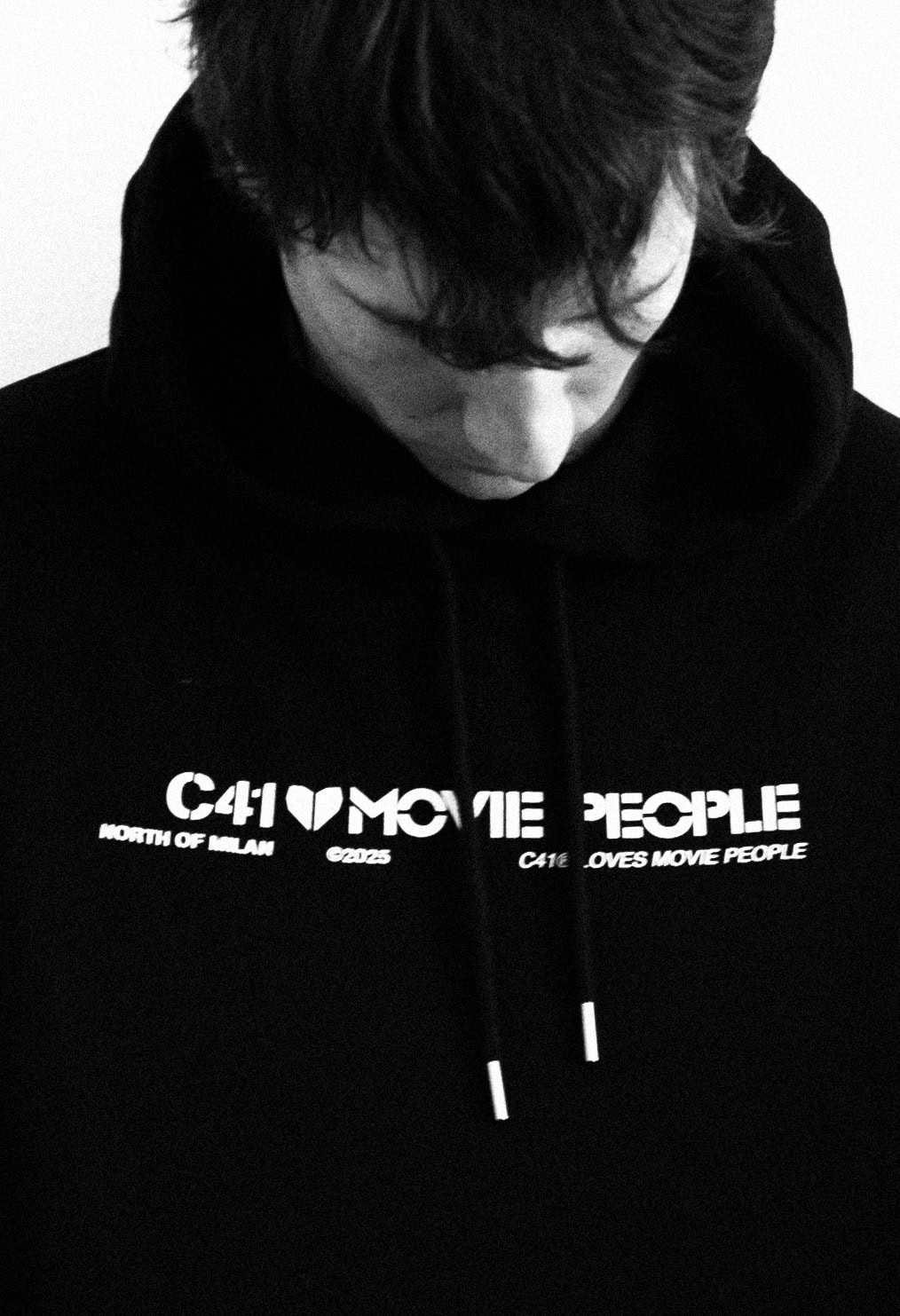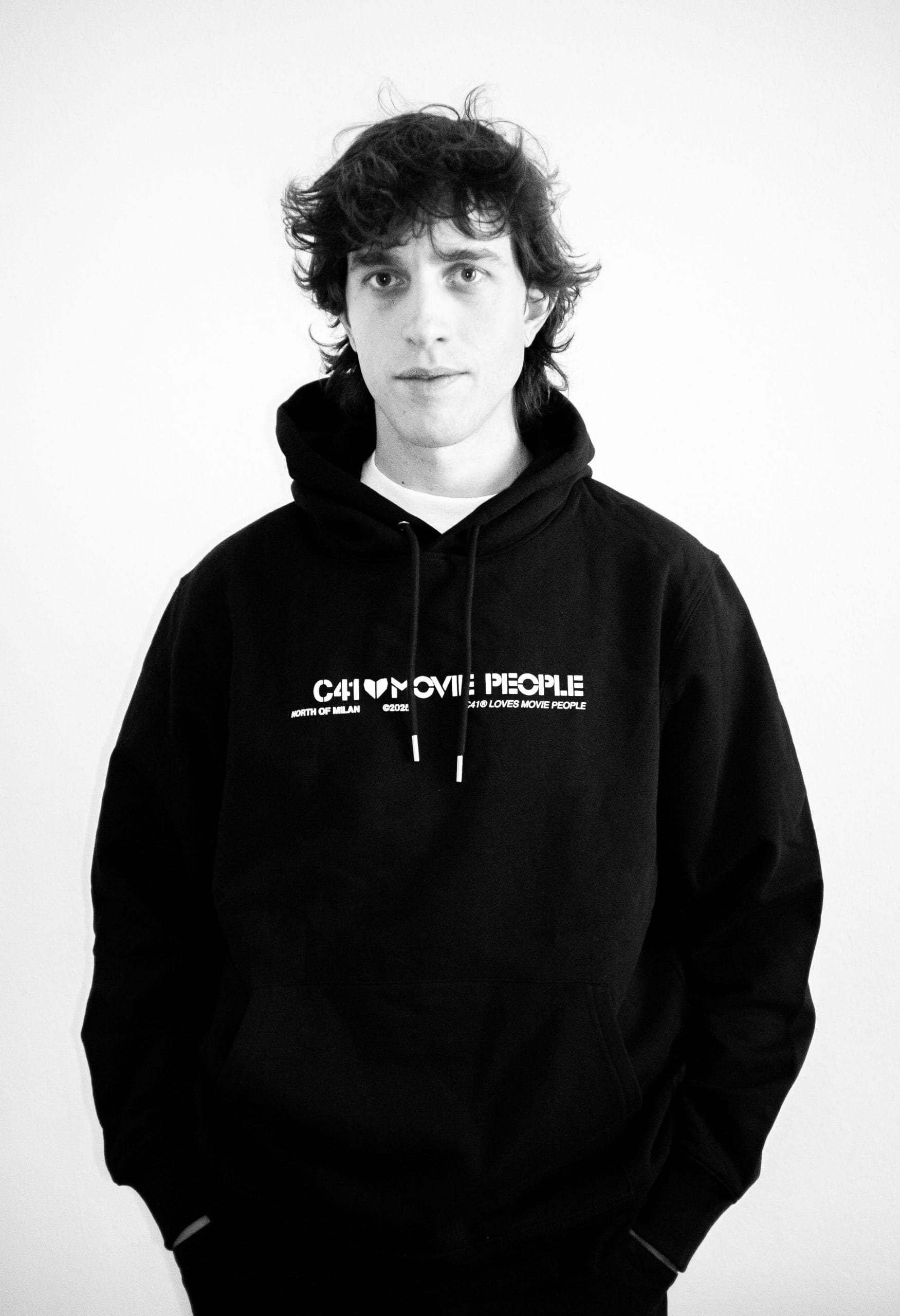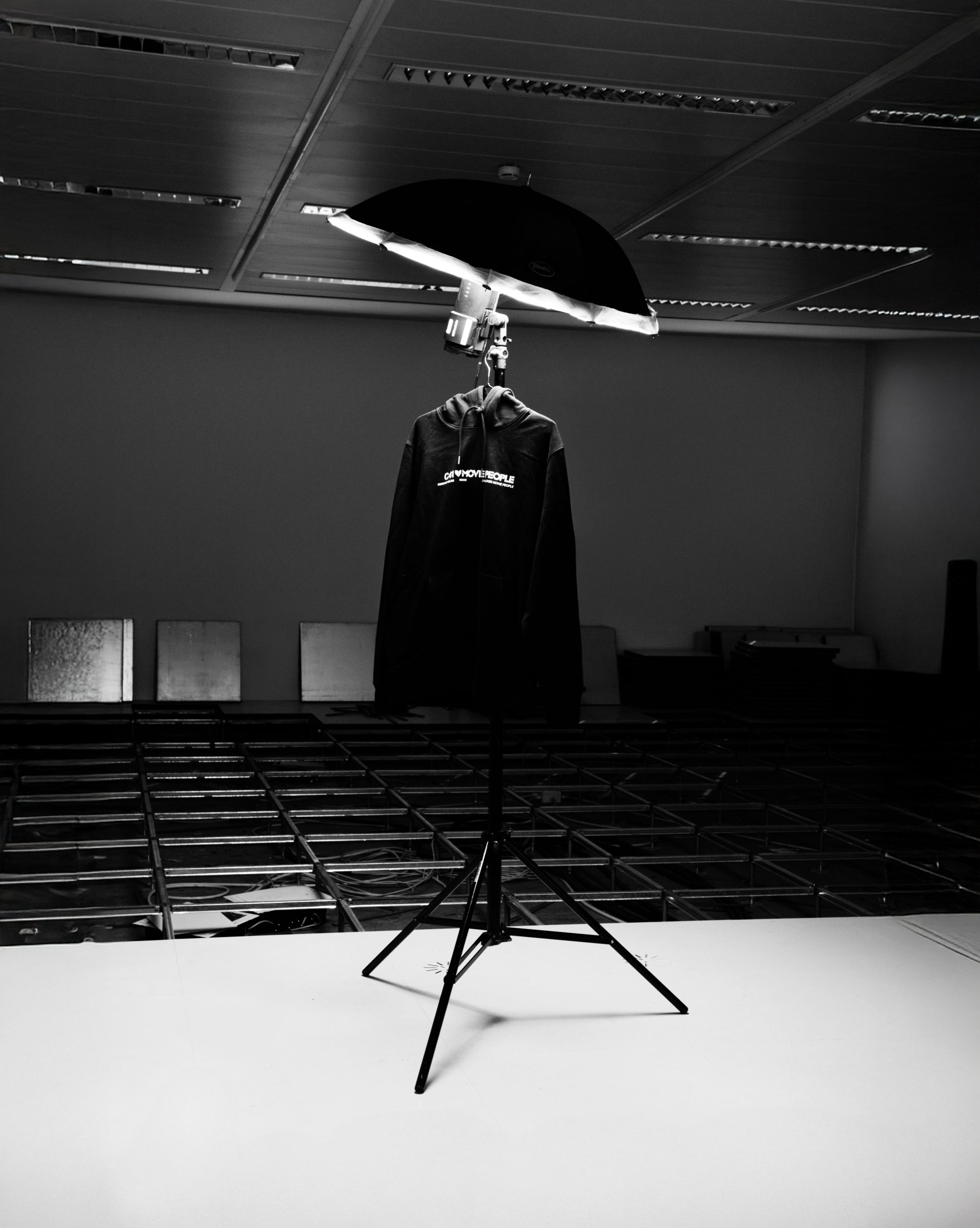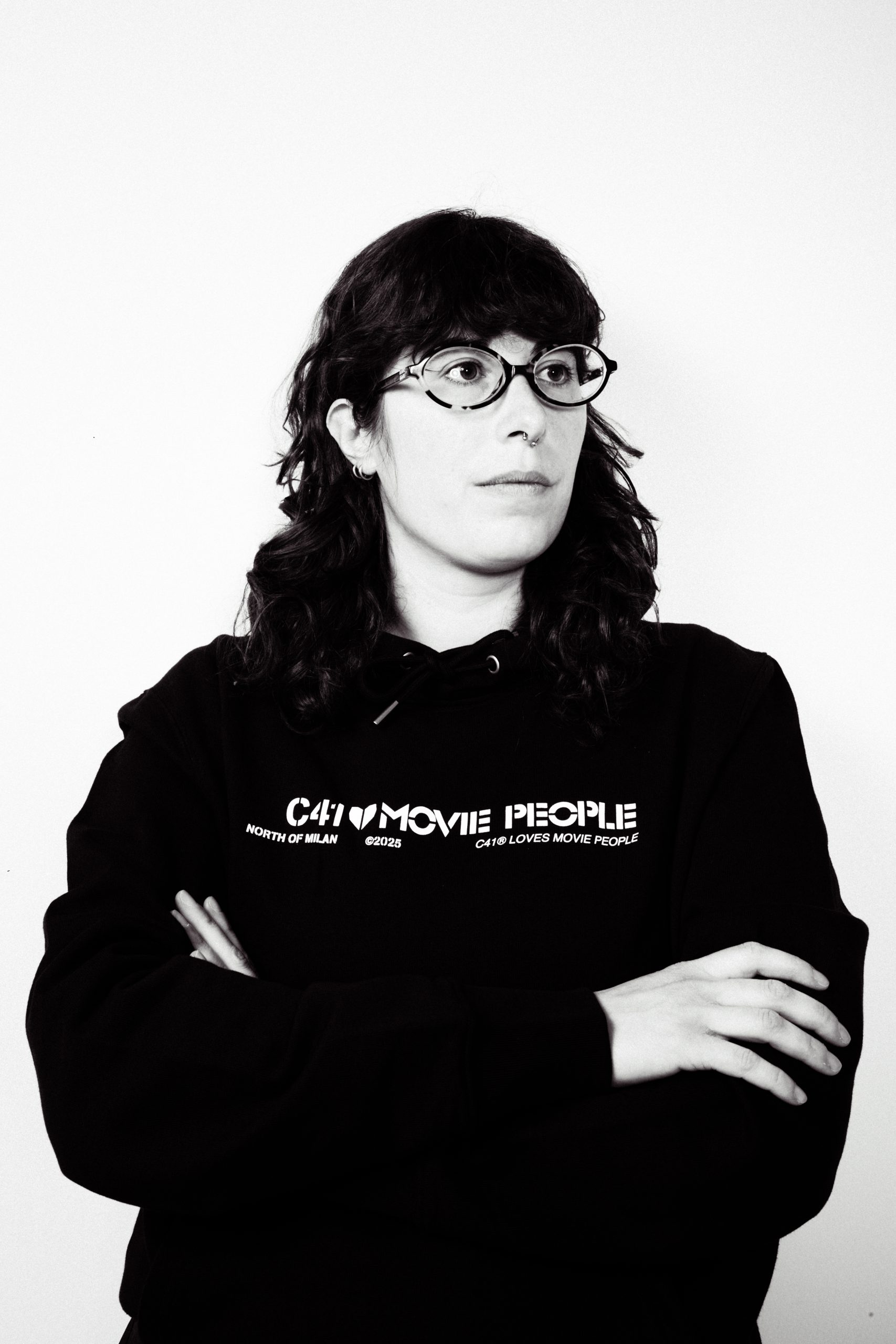From the unique collaboration between C41 and Movie People comes this new sweatshirt, designed for those working behind the scenes but carrying a message that goes beyond the set: A uniform for the crew, a symbol for those who believe that audiovisual is a powerful tool—one that can illuminate stories, generate empathy, and drive change.
Available on the C41 Magazine online shop, part of the proceeds will be donated as support for authentic narratives and cinema that often originates in conflict contexts.
This is possible thanks to the collaboration with Darna Cinema—a film collective that brings together young creatives from various diasporas, who find in film a powerful tool to reclaim and create spaces for their communities, promoting stories chosen directly by the communities themselves.
Redefining the SWANA
I had the privilege of speaking with Fatima and Aya to explore the heart of Darna: the need to tell stories that challenge dominant perceptions and the urgency of creating images that restore dignity and complexity to identities too often simplified or appropriated.
In Arabic, Darna means “our home.”
More than just an evocative name, it is a statement of intent: a safe, shared space of belonging and reclamation. Darna is a film project that brings together young creatives from the SWANA (Southwest Asia and North Africa) diaspora who see cinema as a tool for rewriting and reclaiming narrative spaces. In a landscape still dominated by Western perspectives, Darna introduces new forms of artistic expression, deconstructing conventional narratives and creating a visual language rooted in the experiences of those who have always inhabited the border between identity and otherness.
The collective is made up of individuals with multidisciplinary backgrounds, united by the desire to explore diasporic identity through moving images.
Among them is Fatima El Mouh, originally from Agadir and raised in Italy, with a background in audiovisual communication and screenwriting. Mehdi Meskar, an Italian-Moroccan actor and director, is known for his role in Skam Italia and is currently active in Paris. Mariam El Ayadi, an anthropologist and scholar of visual language, is committed to decolonizing imagery. Aya Mohamed, born in Egypt and raised in Milan, works in fashion and social activism. S. Himasha Weerappulige, with a background in music and cinema, develops screenplays and soundtracks. Imane Kamil, an expert in international relations and human rights, specializes in narrative techniques. Sara Gomaa Mabrouk is refining her path in film communication through studies in Cinema and Media Engineering at the Polytechnic University of Turin.
When asked how Darna was born and when they realized it was necessary to create the project, they described its creation as an act of resistance and affirmation. There had always been a void in the representation of their stories—experiences told by others, often distorted or simplified into prepackaged categories. They all shared the urgency of building an imaginary that started from them, spoke their language, and told their experiences with authenticity. The project came about almost spontaneously, through the meeting of people who felt the same need. They wanted to create a narrative home, a space where they could feel represented without having to explain or justify themselves.
Their work addresses complex themes such as identity, memory, and belonging, and they translate these concepts into cinematic language by using film as a powerful tool of re-signification. Their goal is not just to tell stories but to give shape to an interior and collective dimension that often remains invisible. Memory, for instance, is never static in their work—it is explored as a flow, something that recomposes itself through images, sounds, and layered sensations. The diasporic experience is made up of simultaneous absences and presences, and their aim is to translate this tension into images that evoke rather than explain.
They frequently use archival materials, objects laden with history, fragments of voices and languages that intertwine, all to convey this complexity. Their intention is to tell stories of marginalized realities without always focusing on negative perspectives. Too often, Arabs in cinema are portrayed in war, as terrorists, or through the stereotypical image of the veiled woman. These monolithic narratives create a distorted perception of SWANA cultures. Yet, Egypt is widely known for its comedy films, Morocco has an incredibly rich visual language in its cinema, and Iranian cinema is one of the world’s greatest exporters, recognized for its exceptional screenwriting. The region’s cinematic landscape is diverse and complex, and Darna wants to highlight that. Community plays a fundamental role in their creative process—not just as an audience but as an integral part of their work. They do not see themselves as distant auteurs but as facilitators of a collective narrative.
Every project they undertake is born from dialogue, from the sharing of experiences and memories. Their goal is to create spaces where the community can see itself reflected and actively contribute to shaping new narratives. For this reason, they organize gatherings, participatory screenings, and workshops, turning cinema into a living and shared experience.
The biggest challenges they face in an industry that remains largely Eurocentric revolve around access to resources. The system is structured in a way that privileges certain voices while keeping others at the margins. Often, they encounter prepackaged expectations about what it means to tell stories from the diaspora—narratives that are expected to be linear and easily categorized—while they seek to break these molds.
Representation, they explain, is a complex issue: visibility alone is not enough; control over one’s own stories is crucial. Darna introduces new forms of artistic expression, offering a cinematic perspective that deconstructs conventional views. Their goal is to give space to their voices and communities, not solely through political or social lenses, but by showcasing everyday lives, realities, and truths—independent of religion or politics. This remains their guiding thread because it is at the core of their identity. From a Western perspective, they are already racialized, already politicized, even when they do not intend to be. For this reason, their future objective is to continue their work in promoting cinema.
Reflecting on the projects that have been most emblematic of their journey, they mention collaborations with Cinema Beltrade in Milan, Cinema Troisi in Rome, and Eden in Brescia—spaces that share their vision of representation and offer non-mainstream programming.
In recent months, they have been working closely with cinemas to promote films, while also organizing workshops, such as the one at NABA, where they discussed Arab cinema and colonialism in Arab film. It was an enriching experience, creating unexpected connections and demonstrating how cinema can truly become a means of mending historical fractures. Looking to the future, Darna wants to expand its language, explore new forms of storytelling, and experiment with other media. They are working on projects that connect cinema with performance, visual art, and writing, always with the aim of creating a space of resistance and expression where their voices can resonate without filters or mediation.
Their journey has only just begun, and they are ready to push even further.
